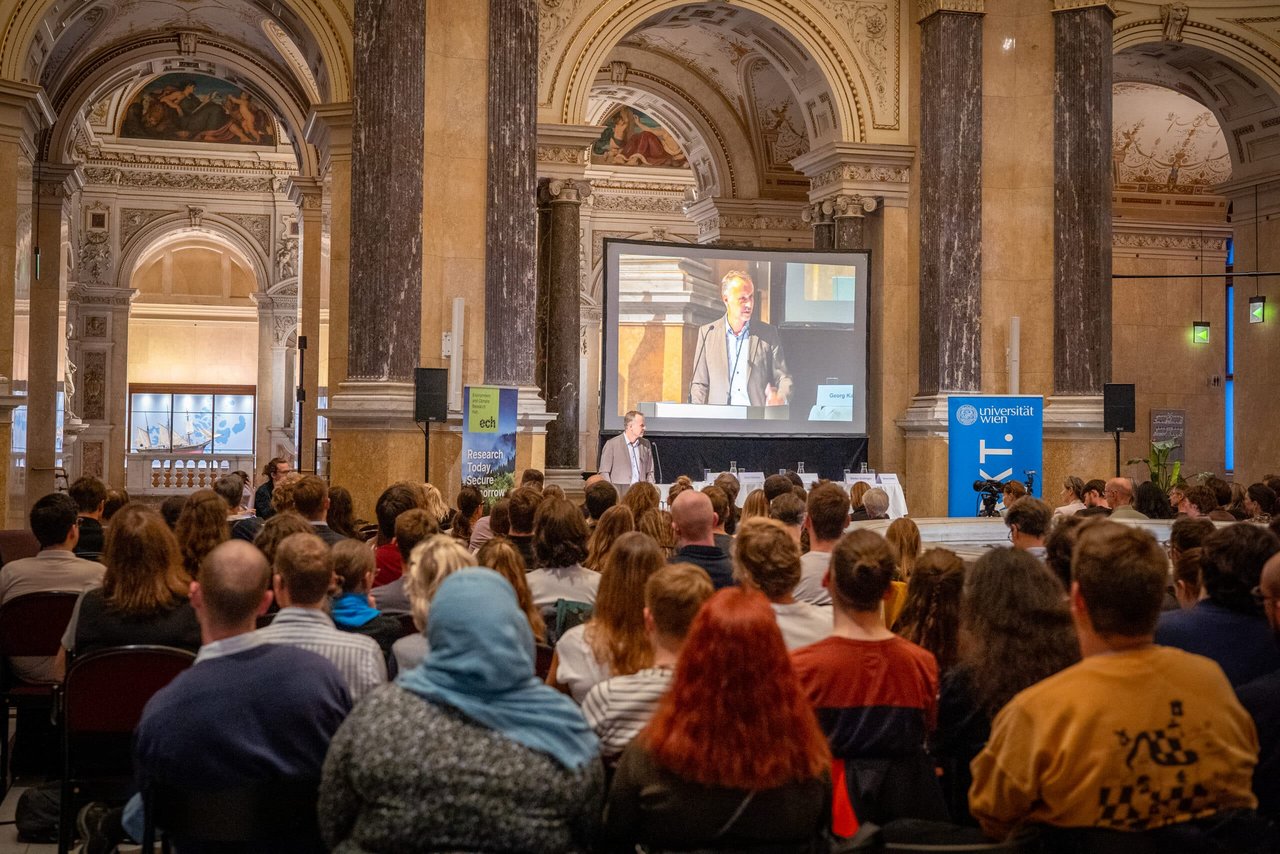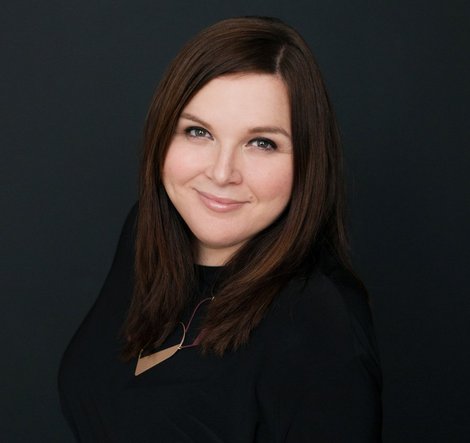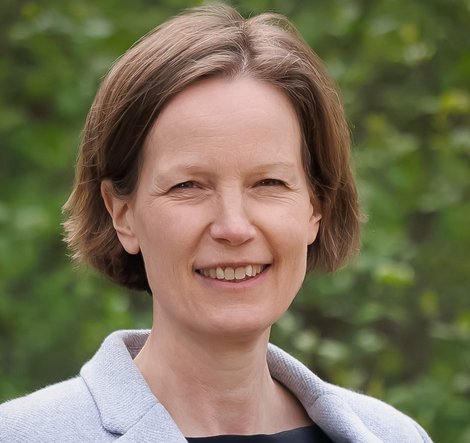Communicating Climate Science: A Call for Democratising Knowledge
When science speaks, society benefits. Climate research is too urgent and complex to remain within academia. For the ECH, silence is not an option. This is why the ECH reaches out to society to communicate complex environmental research.
In the late 1950s, after Russia launched the Sputnik satellite, surveys showed widespread faith in science to make life healthier and easier. You might assume the public was well informed about scientific information. Yet, only 38 % knew the Moon is smaller than Earth.
Today, climate change is among the most covered topics in new media. Coverage has grown sharply in two categories of countries: those who are carbon-dependent and have Kyoto commitments, and those heavily affected by climate impacts. Still, this attention also fuels polarisation, distrust arising from unanswered questions or misinterpreted results, and the nagging question:
How, exactly, should we communicate climate science? Ideally, to raise both knowledge of and respect for science.
Out of the academic echo chamber
The grand stage of environmental and climate research is not a silent laboratory. It is a network of ideas, data, uncertainties – and above all, people. That is why, for the Environment and Climate Research Hub (ECH) of the University of Vienna, a major goal is to ensure that scientific insight does not remain locked in an academic echo chamber.
Climate change, biodiversity loss, and pollution – the so-called “Triple Crisis” – are not abstract graphs in a journal article. They are lived realities, and they affect us all. “We’re facing enormous challenges that can only be addressed collectively,” says Thilo Hofmann, one of the ECH’s two co-directors. “This calls for a dialogue between science and society – honest, reciprocal, and open to new perspectives.”
From Information to Dialogue
The question is: How can climate and environmental research interact with audiences who do not read peer-reviewed journals with their breakfast? “Climate protection is a special field in science communication, because it is incredibly complex and works so predictively,” says Sophie Lecheler, professor of communication at the University of Vienna.
Lecheler explains: “Attitudes towards science are multidimensional – with cognitive, affective and behavioural effects to consider. Cognitive effects foster knowledge and a sense of efficacy, such as the thought ‘I could be a scientist, too’. Affective effects could be positive feelings towards science like trust. The third category, behavioural, leads to seeking more information, visiting museums, or, in the context of climate change, eating less meat or cycling instead of driving.”
Earlier models perpetuated the myth that science media should simply educate people after they leave the formal education system, assuming they would then adopt beliefs aligned with science. Yet empirical evidence shows that political views are based largely on values, ideologies or religion rather than on science literacy. Therefore, science communication should go beyond the one-way transmission of facts and instead foster dialogue that democratises science. This kind of engagement builds trust and encourages productive discussion about the social, ethical and economic dimensions. What is needed is meaningful participation – the earlier, the better.

Why Research Must Also Speak
At the Environment and Climate Research Hub, communication is not an afterthought; it is integral to doing science. Since its founding in 2024, the hub has brought together more than 70 researchers across disciplines – from atmospheric science to environmental psychology, from biodiversity to law and economics.
Research is interdisciplinary, challenges are complex, and solutions must be too. Yet without public understanding, political momentum, and individual decision-making, even the best science will not be able to make a change. As environmental psychologist and ECH co-director Sabine Pahl puts it: “Scientific insights are not just an end in themselves. In the ECH specifically we want both excellent and relevant science, in the sense that our evidence can help society navigate complexity and make better decisions.”
Outreach with Impact: “Umwelt im Gespräch” and the ECHO Newsletter
What does this look like in practice? Take “Umwelt im Gespräch” ("Environmental Dialogue"), a public event series hosted by ECH in collaboration with Vienna’s Natural History Museum. Here, researchers engage in live discussions with policymakers, civil society, and the media. Instead of simply handing down answers, the event is raising important questions: How does microplastic affect our food systems? Is urban soil losing its memory? Can cities learn to breathe?
The ECHO newsletter follows a similar ethos: offering context for climate research, not just presenting facts. Targeted at a global, academically engaged public, it doesn’t merely summarise new papers. It explores pressing themes through multiple disciplinary lenses, in relation to societal shifts, with space for controversy, hope and curiosity.

From Knowledge to Action – Digitally and Didactically
In autumn 2025, ECH will go further still by launching the free online course “Environmental Emergencies - Navigating Climate Change, Biodiversity Loss and Environmental Pollution” to a global audience. With contributions from around 30 ECH members, the course addresses the Triple Crisis and its social-ecological ramifications. Modules cover climate change, biodiversity, and pollution - offering not just facts but pathways for action.
Meanwhile, the ECH’s public lecture series at the University of Vienna “From Knowledge to Action”, co-developed with the City of Vienna, anchors global issues in everyday life. Following a fictional Viennese citizen through her day, it addresses mobility, food systems, healthcare, energy and civic participation. The result? A curriculum rooted in urban realities and framed for transformative thinking.
“We communicate in different formats, whether for experts or people with fewer access to education,” says ECH co-director Hofmann. Lecheler agrees: “Science communication must be a multi-level strategy. And we have to start early: Once someone reaches the age of 30, it is much more difficult to change attitudes towards science through short-term communication.” The critical window is between 15 and 18 years of age, according to a recent study that followed Generation X over 33 years.
What’s the way to go in science communication? – Highlights from Sophie Lecheler
- Build trust through transparency by repeatedly explaining the scientific method, beginning in schools to lay the foundations
- Tailour to audiences; there is no one-size-fits-all communication
- Create institutional communication models and professionalise science communication; don’t expect every individual researcher to manage social media
- Establish incentives for researchers to communicate their work (e.g. recognise outreach in grant applications)
- For individual scientists, avoid making blanket statements and assess the political context of your work to ensure that you can share your expertise without being instrumentalised
- Institutions must protect researchers who become political targets; ensure safe conditions for communication
- Match formats to skills and diversify roles; not everyone is suited to speaking on the news or in parliament
- Keep the people behind the science visible and show the human side of research
- Work in teams with communication experts
An Invitation to Join the Conversation
Scientists should be actively engaging with the public. “The framework, however, must be provided by the institutions, which is why research networks such as the ECH are so important. They provide the structure within which scientists can communicate,” says Lecheler.
The Environment and Climate Research Hub sees itself as a catalyst: for interdisciplinary collaboration, for societal dialogue, and for rethinking how we live. It’s not about final answers. It’s about honest grappling – with data, with contradictions, with possible futures.
“During the coronavirus pandemic, it became clear that one of the greatest challenges was communicating scientific uncertainties and probabilities in a way that people could understand. When this failed, trust in institutions eroded, leaving space for misinformation. Therefore, I believe it is more important than ever to engage openly with society and to communicate science transparently, as this interaction helps to reinforce the foundations of democracy,” says Hofmann. “Science alone won’t save the world. But it can open doors – and provide the tools we need to build solutions together.“ "And that works best if we build on principles from communication science and work with professional communicators”, ECH co-director Sabine Pahl adds.
Entering the “Hidden Rooms” of Policy Advice
Such dialogue is vital, yet it must always be seen against the backdrop of the socio-political context. Science communication also needs to happen in the “hidden rooms” where decisions are made, Lecheler points out, such as when scientists act as experts in parliaments and public institutions like the United Nations. These venues matter profoundly for how knowledge travels into laws, regulations and standards. “Climate researchers know this best, and it underscores a practical need: clearer training and support for scientists to operate confidently in these forums,” says Lecheler.
With this, science communication becomes a vibrant discourse embedded in the current socio-political reality, and its messages can resonate far beyond academia. That’s why the ECH speaks up. Not because it has all the answers – but because it knows that knowledge only matters when it’s shared.
What’s next for science communication?
We’d love your ideas for the ECH – new formats, audiences we’re missing, questions you want answered.
Share your thoughts with us at: ech@univie.ac.at
About the researchers
Thilo Hofmann is an environmental chemist and head of the research platform ‘Plastics in the Environment and Society’ as well as Co-Director of the Environment and Climate Research Hub (ECH) of the University of Vienna. His research focuses on the environmental fate of emerging contaminants and aims to develop practical solutions to pollution-related challenges. Hofmann has received numerous awards, including from the German Academic Scholarship Foundation, TU Berlin, and the German Water Chemical Society. He is adjunct/visiting professor at Duke University (USA) and Nankai University (China).
 Nora Gau
Nora GauSophie Lecheler is Professor of Communication Science with a focus on Political Communication at the Department of Communication at the University of Vienna. She previously worked at the Amsterdam School of Communication Research (ASCoR) at the University of Amsterdam as an Associate Professor, and as a Marie Curie Research Fellow at the Department of Government at the London School of Economics and Political Science (LSE). Lecheler heads the ‘Political Communication Research Group’, which studies the interaction between political elites, media, and citizens. Her goal is to understand how and under which conditions political elites communicate with citizens, what role media organizations and journalists play in the political communication process, and how citizens engage with political communication across various platforms.
 LeeDina Portraits
LeeDina PortraitsSabine Pahl is a Social Psychologist engaged in basic and applied research and her applied work focuses on the human dimension in environmental issues as well as Co-Director of the ECH. She investigates perceptions and behaviour change, particularly in the area of protecting marine environments, marine litter and microplastics and energy efficiency. At the international level, she has contributed to two microplastics reports with the Joint Group of Experts on the Scientific Aspects of Marine Environmental Pollution (GESAMP WG40), and has led the UNEP-funded global stocktake of actions against plastic pollution in 2020. She was co-chair of an interdisciplinary working group that reported to the EU Group of Chief Scientific Advisors (SAPEA, 2019) and has contributed to a G7 working group in October 2019 and a WHO working group in March 2020.
 derknopfdruecker.com
derknopfdruecker.com
Stay up to date!
Our research newsletter ‘ECHO’ provides you with the latest and most exciting information from the fields of environmental and climate research.

